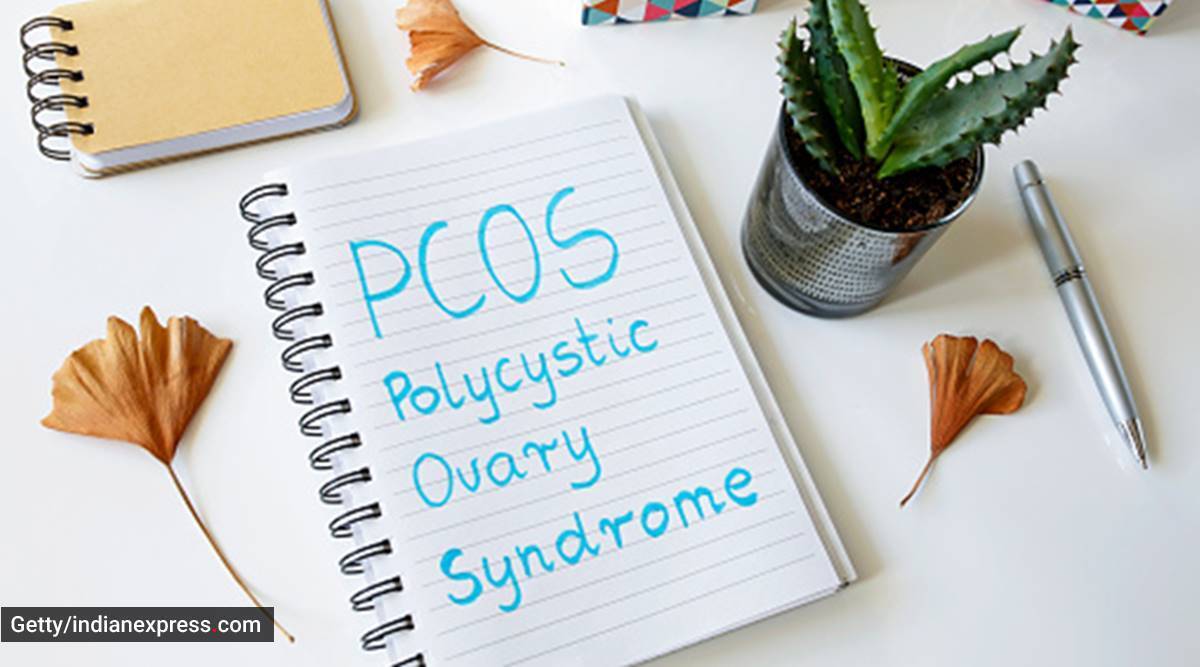- India
- International
Things women with PCOS should keep in mind during and after pregnancy
Some women may experience reduced fertility (also called sub-fertility) due to absence of ovulation and damage to the uterus inner lining, which can make it difficult to get pregnant," said Dr Mansi Verma, gynaecologist, Veera Health
 It is crucial for women to take utmost care of their health and nutrition during pregnancy. (Source: Getty Images/Thinkstock)
It is crucial for women to take utmost care of their health and nutrition during pregnancy. (Source: Getty Images/Thinkstock)Among the many myths and misconceptions around Polycystic Ovary Syndrome (PCOS), the one that is most common is that women with PCOS “cannot conceive”. “But, the truth is, PCOS does not make women infertile. It just makes it difficult to track ovulation,” said Dr Mansi Verma, gynaecologist, Veera Health. Does that mean women with PCOS can successfully conceive and carry the pregnancy to term?
“Yes; however, some women may experience reduced fertility (or sub-fertility) due to the absence of ovulation and damage to the uterus’ inner lining, which can make it difficult to get pregnant,” Dr Verma told indianexpress.com. But, she pointed out that the effects of PCOS are not limited to only “difficulty with conception, it can also affect pregnancy by increasing the risk of developing metabolic complications. Additionally, the underlying hormonal imbalance, if left untreated, can increase the risk of affecting the infant’s health,” she added.
Buy Now | Our best subscription plan now has a special price
As such, while every woman’s pregnancy journey is different, especially with PCOS, there are some common considerations to bear in mind. These include:
First trimester
The first trimester (0 to 13 weeks) is a crucial phase for the baby’s development. Although you may not see much happening outside, on the inside, major body organs and systems of the baby are forming. You might experience symptoms such as nausea, fatigue, constipation, tender breasts, and frequent urination. However, you should speak to a doctor if you are experiencing extreme nausea, heavy vaginal bleeding, severe stomach pain, or sudden swelling of the face or legs.

“Remember that most miscarriages and birth defects happen during this trimester, and women with PCOS, especially, are at a higher risk of experiencing miscarriage. This makes it important for the doctor to closely monitor the pregnancy. You may end up losing weight rather than gaining in the first trimester but consuming essential vitamins, maintaining hydration, and taking adequate rest is important for you to manage first trimester changes,” Dr Verma explained.
Second trimester
The second trimester (14 to 26 weeks) is said to be physically easier than the first; symptoms such as nausea, and fatigue usually reduce. In this trimester, the baby is growing rapidly and you can physically see the body changing. Some women may experience pregnancy-induced hypertension which, if left untreated, can be harmful to the mother as well as the baby. “It is important to closely monitor a patient’s calorie intake to avoid unhealthy weight gain during pregnancy as it is observed that weight gain can increase the risk of developing gestational diabetes (diabetes during pregnancy) which may make vaginal delivery difficult with other birthing complications like instrumental delivery or emergency caesarean delivery,” Dr Verma added.
 PCOS is a lifestyle disorder (Source: Getty Images/Thinkstock)
PCOS is a lifestyle disorder (Source: Getty Images/Thinkstock)
Third trimester
In the third trimester (27 to 40 weeks), you might feel uncomfortable as the body prepares for the delivery of the baby and there might be false labour pains (Braxton Hicks contractions). “Since women with PCOS are at an increased risk of developing gestational diabetes and preeclampsia (sudden high blood pressure after the 20th week of pregnancy), doctors will monitor your health closely to promote healthy pregnancy and will also create a safe delivery plan. PCOS also increases the risk of having a preterm birth i.e. infants delivered before 37 weeks. Preterm infants are at a risk of developing health problems right after birth or even later in life,” she added.
Postpartum care
Managing PCOS symptoms should continue even after pregnancy; it requires lifelong care. Postpartum care is crucial to protecting PCOS patients from risk of diabetes, and heart disease in future, she said. Since symptoms and their severity will vary, it is important to adjust the treatment plan accordingly to suit individual concerns, Dr Verma said.
“In fact, postpartum blues and depression are common symptoms and women with a history of mental illness are at an increased risk of developing these conditions. Given the baseline struggles with weight loss, women with PCOS should particularly pay attention to managing their weight after delivery. Although we’ve seen with our patients that gestational diabetes and hypertensive disorders do get resolved after pregnancy, they can still be at a higher risk of developing insulin resistance and cardiovascular diseases later on in life,” Dr Verma said.
📣 For more lifestyle news, follow us on Instagram | Twitter | Facebook and don’t miss out on the latest updates!
Apr 26: Latest News
- 011 day ago
- 021 day ago
- 0314 hours ago
- 041 day ago
- 051 day ago



























